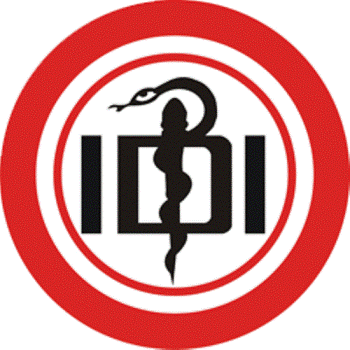August 27, 2009
Weekly Report on H1N1 (Swine) Flu as of August 27, 2009
Weekly Report: Download Weekly Report 8_27_2009 (PDF)
It's been another busy week of planning for the fall flu season, and the expected return of H1N1 (swine) flu in the state. On Tuesday, there was considerable media attention on a report put out by the President's Council of Advisors on Science and Technology. The report indicated that H1N1 could, in a worst case scenario, cause as many as 90,000 deaths in the U.S. this flu season. A New York Times article, however, showed that there was considerable disagreement in some quarters as to whether that estimate may be overly pessimistic.
There's no way to tell what we'll see this fall, but we do know that there are simple, easy ways that we can protect ourselves from getting or spreading the flu, whether seasonal or H1N1 (swine).
Get vaccinated. Seasonal flu vaccine should be arriving in the state by mid-September, and initial shipments of H1N1 (swine) flu vaccine should get here starting in mid-October (with more supplies coming steadily after that).
Wash your hands often with soap and warm water, or use an alcohol-based hand sanitizer.
Cough or sneeze into a tissue, or into your inner elbow if a tissue isn't handy.
If you're sick then please stay home from school or work.
Finally, stay informed as flu season gets underway. For instance, next week parents of school-age children will be receiving a packet of informational materials from their child's school on how to keep themselves and their families healthy during flu season, and what to do if their child gets sick. And of course, we'll continue to update this blog whenever new information becomes available -- so check back often.
August 21, 2009
Weekly Report on H1N1 Influenza as of August 20, 2009
Weekly Report: Download Weekly Report-8-20 (Download PDFWklyRept-8-20)
This Week's Developments:
On Monday, we had the unfortunate duty of announcing an H1N1-related death of a 26 year-old resident who had no known underlying health conditions. The death of a young, healthy individual is a tragic reminder of the seriousness of influenza, and underscores the importance of our planning for the upcoming flu season. So far we've identified nearly 1400 confirmed cases of H1N1 flu, although the actual number of cases is much higher given that only the most serious cases are tested.
The pace of planning on the national, state and local levels is accelerating substantially as we head into the fall. The Centers for Disease Control and Prevention this week released two helpful toolkits that will assist businesses and colleges and universities in dealing with a myriad of planning issues related to the expected resurgence of H1N1 flu in the coming months.
Both of the toolkits offer concrete steps that these organizations can take to better prepare for flu season.
Earlier today, DPH Commissioner John Auerbach joined Mayor Thomas M. Menino and Dr. Barbara Ferrer at the Boston Public Health Commission's Boston Influenza Preparedness Summit at the Harvard Medical School Campus. More than 500 individuals representing government, public health, health care, schools, businesses, organized labor, faith based organizations, and long-term care facilities came together to hear the latest on flu planning activities in Boston. Attendees also had an opportunity to attend ten different break-out sessions on various topics related to flu response. DPH will host a similar statewide flu response conference later in September.
August 20, 2009
CDC Releases H1N1 Toolkit to Help Higher Ed. Institutions Prepare
 Posted by:
Posted by:
Tom Lyons, Department of Public Health
Following-up on yesterday's announcement of an H1N1 preparedness toolkit for business, the Center's for Disease Control and Prevention today released guidance for colleges and university to prepare for a resurgence of H1N1 flu. The announcement of a college and university toolkit was made jointly by HHS Secretary Kathleen Sebelius, and U.S. Education Secretary Arne Duncan. The toolkit offers information on resources to help students, faculty and staff implement CDC's guidance for Responses to Influenza for Institutions of Higher Education during the 2009-2010 Academic Year.
The toolkit includes;
- fact sheets for institutions, students, faculty and staff
- posters to encourage good hand hygiene and cough etiquette
- a template letter or email for students, staff and parents
- template announcements on the flu for college and university communities
- text messages on flu for students, faculty, staff and parents
The information released today also provides guidance for colleges and universities on strategies to encourage self isolation of sick individuals on campus, and on additional steps to take should the current flu situation become more severe. The information released today can be found at www.flu.gov, or atwww.Ed.gov.
August 19, 2009
Federal Govt. Releases "Toolkit" for Business to Plan for H1N1 flu.
 Posted by:
Posted by:
Tom Lyons, Department of Public Health
Today three Obama Administration cabinet secretaries announced the release of a business toolkit to help with preparedness for H1N1 flu. Cabinet secretaries Locke (Commerce), Sebelious (HHS) and Napolitano (Homeland Security) stressed the need for businesses to take a proactive planning posture for what is expected to be a resurgence of H1N1 flu in the fall and winter months.
Among other topics, the federal officials discussed the need for businesses to:
- develop continuity of operations plans and cross-train staff to deal with increases absenteeism due to the flu
- implement sick-time policies that are not punitive, and that encourage employees to stay home if they are sick or caring for a child who is ill (specifically, that businesses should drop policies such as requiring employees to get a doctor's note if they are out sick. The health care system will be busy enough this fall and winter...)
- explore alternative work models, such as telecommuting
- encourage their employees to get vaccinated with seasonal flu vaccine as soon as possible and with H1N1 vaccine when it's developed. And consider offering seasonal flu vaccination clinics at the worksite.
- create an environment where it is easy for employees to practice good hand hygiene by encouraging frequent handwashing and providing alcohol-based hand sanitizer
You can find the Toolkit by visiting www.flu.gov.
August 13, 2009
Weekly Report on Novel H1N1 Influenza as of August 13, 2009.
Weekly Report: Download Weekly Report 8-13-09 (Download PDFWeeklyRept)
This Week's Developments:
Yesterday, the Massachusetts Public Health Council (PHC) approved two sets of emergency regulations that will better protect Bay State health care workers and residents during the upcoming flu season.
The first set of regulations require licensed health care facilities in Massachusetts to offer all employees of those facilities seasonal influenza vaccine, and H1N1 vaccine when it is available. Vaccinating health care workers against the flu is always important but it is even more critical this year. As readers of this blog know well by now, we are facing a flu season in which we will likely have different strains of flu circulating; the seasonal flu as well as the novel H1N1 influenza that first started spreading in the U.S. last spring. H1N1 flu has caused of the first flu pandemic in 40 years, which means its geographic spread is now worldwide. While most people who became infected with H1N1 recovered after mild to moderate illness, the outlook for the fall and winter flu season is uncertain. Having different strains of the flu circulating at the same time can increase the number people who get ill and seek care at health care facilities -- and that can increase demands on our health care system as a whole. Find out more by clicking the link below.
Continue reading "Weekly Report on Novel H1N1 Influenza as of August 13, 2009." »
August 06, 2009
Weekly Report on Novel H1N1 Influenza (swine flu) as of August 6, 2009.
This Week's Developments:
We continue our busy summer of planning for the fall flu season. This week there was a great deal of emphasis on vaccination planning for seasonal influenza and also for novel H1N1 flu. This year, because of expedited production, Massachusetts may see its supply of seasonal influenza vaccine earlier than ever. It is likely that health care providers across the state could start vaccinating their patients for seasonal flu as early as the end of August. This is important because while a vaccine for seasonal influenza won't protect you from the new H1N1 flu, it WILL protect you from the seasonal flu -- which will likely be circulating at the same time that H1N1 flu is circulating.
The CDC is continuing to develop and test a vaccine for H1N1 flu and has indicated that an H1N1 vaccine may be available in large quantities starting in October. Even if the H1N1 vaccine is ready by then, it will likely not be delivered all at once. All states will likely receive an initial allocation and then regular shipments after that.
Given that we are already in August, our planning has also focused on back-to-school issues relating to the upcoming flu season. We are working closely on a number of planning issues with the Massachusetts Department of Elementary and Secondary Education as well as School Health Nurses and our local public health partners. The goal of course is to do our best to keep students and staff healthy and to manage likely flu outbreaks with as little disruption as possible for schools and parents. Soon, the CDC is expected to issue revised guidance on how long students and other people should be kept away from school and work after getting the flu.
You can read our complete weekly report by clicking here: Download 2009-Aug-6_weekly report (For a PDF version click here: Download 2009-Aug-6_weeklyPDF report)
Simple Precautions to Help Stop the Spread of Flu Include:
- Wash your hands frequently with soap and warm water or use an alcohol-based hand sanitizer.
- Cover your cough with a tissue or cough into your inner elbow and not into your hands.
- If you are sick stay home from work and if your child is sick keep them home for 7 days, or 24 hours after your symptoms go away—whichever is longer.
- Stay informed about the latest developments on the H1N1 flu, by visiting www.mass.gov/dph.
July 30, 2009
Weekly H1N1 Flu (swine flu) Update as of July 30, 2009.
This Week's Developments:
The Massachusetts Department of Public Health (DPH) today announced the deaths of a 53-year-old Essex County resident, a 20-year-old Norfolk County resident and a 21-year-old Hampden County resident all related to H1N1. All 3 residents had underlying health conditions that placed them at greater risk of complications from the flu. This brings the total number of deaths related to H1N1 in Massachusetts to 10.
These deaths are a tragic reminder of how serious flu can be for some people. Each year, seasonal influenza causes 250,000 hospitalizations and 36,000 deaths nationally. Certain groups of people are at higher risk of complications from the flu. These groups include: children under the age of 2, adults over the age of 65, pregnant women, and people with chronic health conditions such as asthma, diabetes and heart disease. These people should call their doctor immediately to discuss appropriate treatment if they develop a fever with a cough, sore throat or runny nose.
Simple Precautions to Help Stop the Spread of Flu Include:
- Wash your hands frequently with soap and warm water or use an alcohol-based hand sanitizer.
- Cover your cough with a tissue or cough into your inner elbow and not into your hands.
- If you are sick stay home from work and if your child is sick keep them home for 7 days, or 24 hours after your symptoms go away—whichever is longer.
- Stay informed about the latest developments on the H1N1 flu, by visiting www.mass.gov/dph.
You can read our complete weekly report by clicking here: Download Weekly Report 7-30-09 (For a PDF version click here: Download PDF Weekly Report 7-30-09)
Also this week a board of CDC advisors made recommendations on the use of H1N1 vaccine when it is developed and deemed safe for use. The CDC held a media briefing during which they discussed the recommendations. You can listen to the briefing by clicking the player below.
July 25, 2009
Weekly Report on Novel H1N1 Influenza (swine flu) as of July 24, 2009.
This week Commissioner Auerbach convened the initial meeting of the Department’s statewide H1N1 Advisory Committee to review and discuss planning for a comprehensive response to Influenza A H1N1 in Fall 2009. Participants included representatives from more that 36 public and private organizations, including the MA Department of Elementary and Secondary Education, the Massachusetts Emergency Management Agency, U.S. Department of Health and Human Services, the Massachusetts Medical Society and many others. The Committee will meet monthly to advise the Department on H1N1 planning activities as we continue our planning for the upcoming flu season.
We continue to see influenza-like-illness (ILI) activity at higher levels than we would normally see this time of year in Massachusetts. However, ILI activity has decreased significantly over that past few weeks.
You can read our latest weekly report by clicking here: Download Weekly Report
The CDC gave a media briefing on various H1N1 and seasonal influenza topics on July 24. You can read a full transcript of the briefing by clicking here.
July 16, 2009
Weekly Report on Novel H1N1 Influenza (swine flu) as of July 16, 2009.
This Week’s Developments:
This week, DPH announced two additional deaths related to H1N1 influenza(swine flu) in our state. These deaths are a sad reminder of how serious flu can be for some people -- both residents had underlying health conditions which put them at greater risk for complications from the flu. We have now identified 6 deaths in Massachusetts related to H1N1 flu.
We continue to focus our preparations on the upcoming flu season. Today, the Boston Globe reportedon one element of our response planning: increasing our state stockpile of antiviral treatments. Antivirals can be an important part of an overall response, however they are only one piece of a much larger effort that will be needed to prepare for the fall. There is always a concern that flu viruses will develop resistance to antiviral treatment, and while there have been some reports of resistance with the new H1N1 flu the resistance is not believed to be widespread.
The upcoming week will be a very busy one for DPH as we meet with a variety of government and health care partners to strategize about the fall flu season planning.
Update on Massachusetts:
There was a slight decline in doctor office visits for flu-like illness in Massachusetts last week, however the levels of flu we are detecting through surveillance are far below the peak that we saw last month. Visits to emergency rooms that we monitor for flu-like illness have also dropped slightly from last week.
The CDC report on flu activity throughout the nation can be found here. The New England region is "Region One" and is described at "normal" flu activity levels as is every region throughout the country at this point. While the flu-like illness levels have dropped significantly, we continue to see elevated influenza-like illness activity for this time of year. Click below to see an update of our flu surveillance charts.
Continue reading "Weekly Report on Novel H1N1 Influenza (swine flu) as of July 16, 2009." »
July 13, 2009
Two Additional H1N1 Flu-related Deaths Announced.
The Massachusetts Department of Public Health (DPH) today announced the deaths of two more people linked to H1N1 influenza (swine flu) in the state. A 13 year-old Worcester County resident, who died last week, has been confirmed to have had H1N1. He had a number of underlying health conditions that put him at greater risk of complications from the flu. Confirmatory test results are pending at the Hinton State Laboratory Institute for a 64 year-old Worcester County resident, who died over the weekend, and also had a series of underlying health conditions.
“It is with great sadness that we have learned of two more deaths including the first pediatric death of a Massachusetts resident related to H1N1. We extend our deepest sympathy to the family and friends of both of these individuals,” said DPH Commissioner John Auerbach. “While most cases of H1N1 in Massachusetts and across the nation have been less severe, this news demonstrates once again how serious influenza can be.”
As of today, there have been more than 1300 confirmed cases of H1N1 influenza in Massachusetts. Sixty-four percent of the confirmed cases in Massachusetts have been in people under the age of 18. Each year, seasonal influenza causes 250,000 hospitalizations and 36,000 deaths nationally.
Read the Announcement: Download 2009-7-13 WorcCountyH1N1 final
24.jpg)






















No comments:
Post a Comment